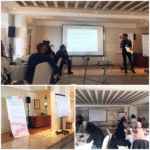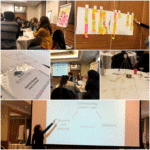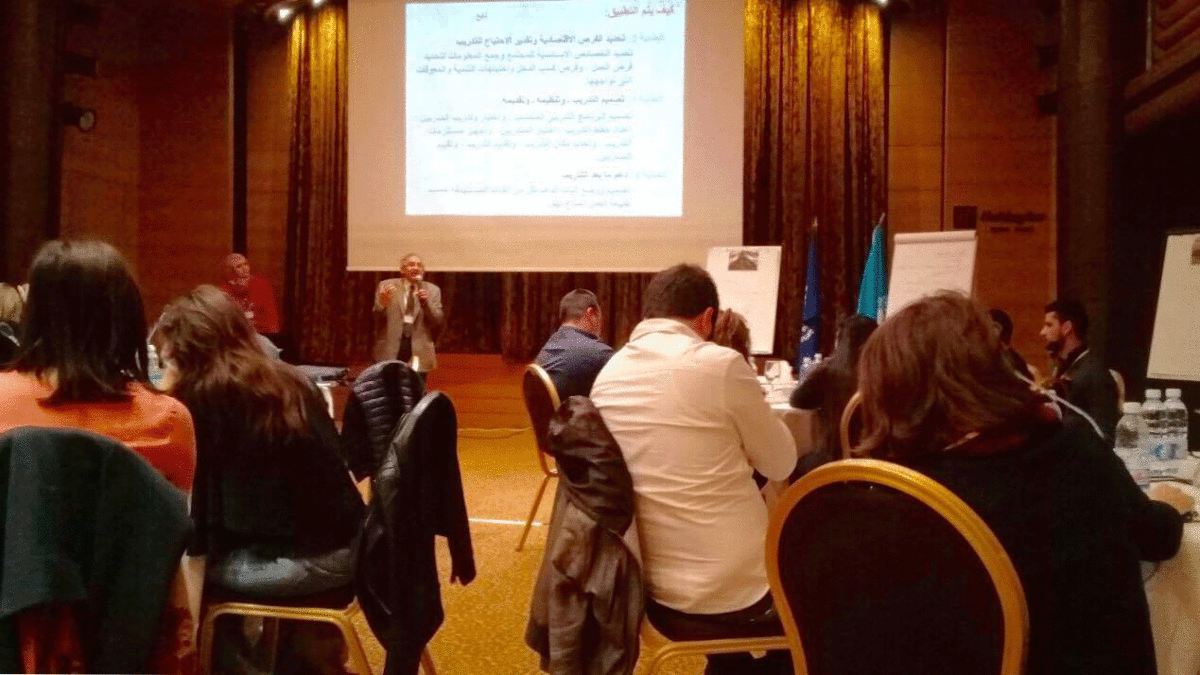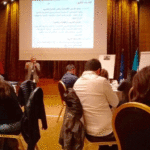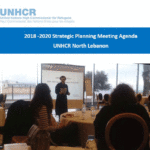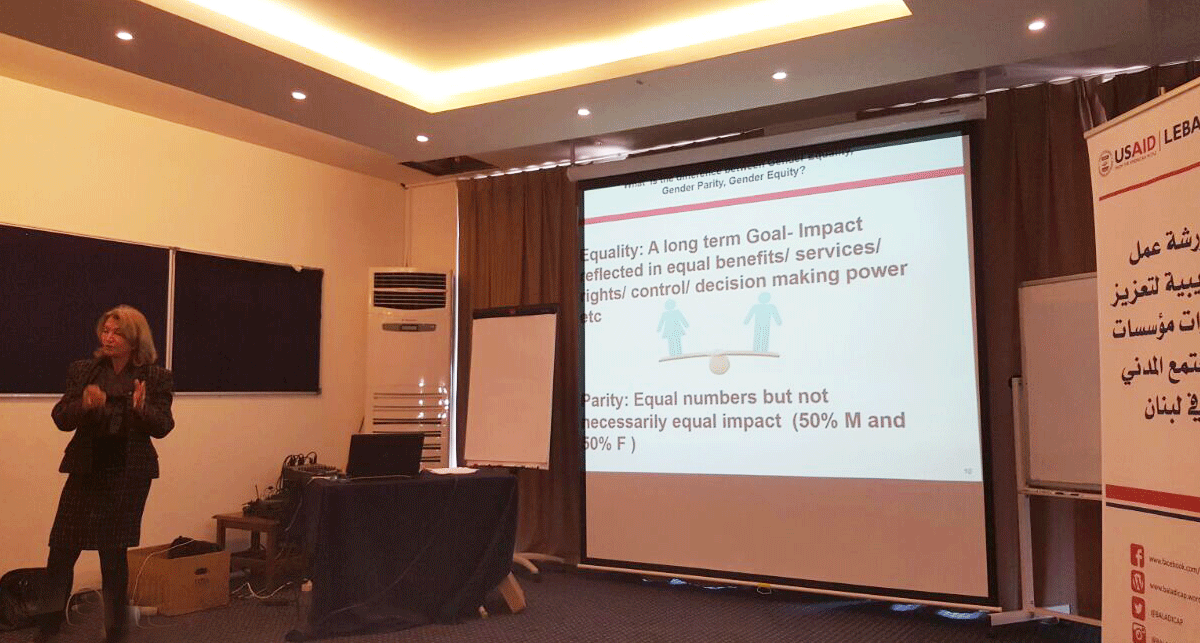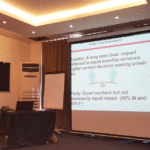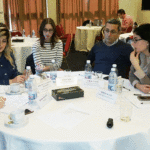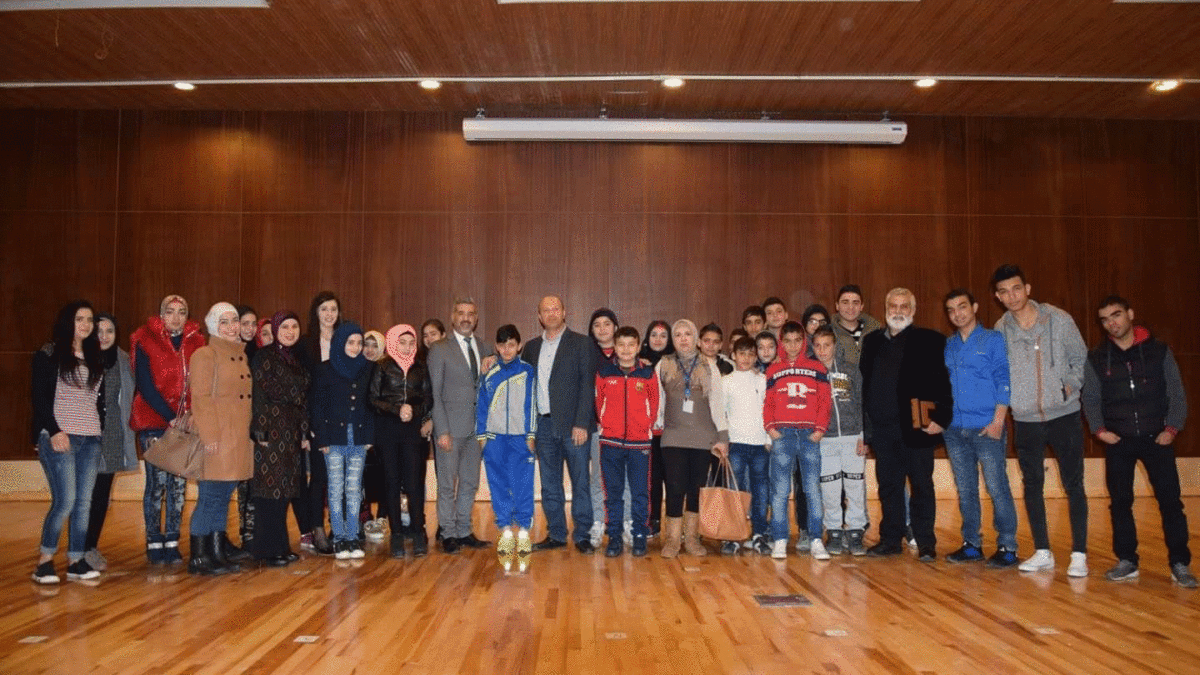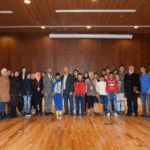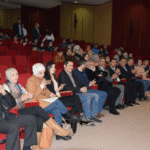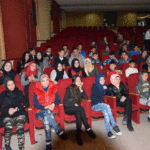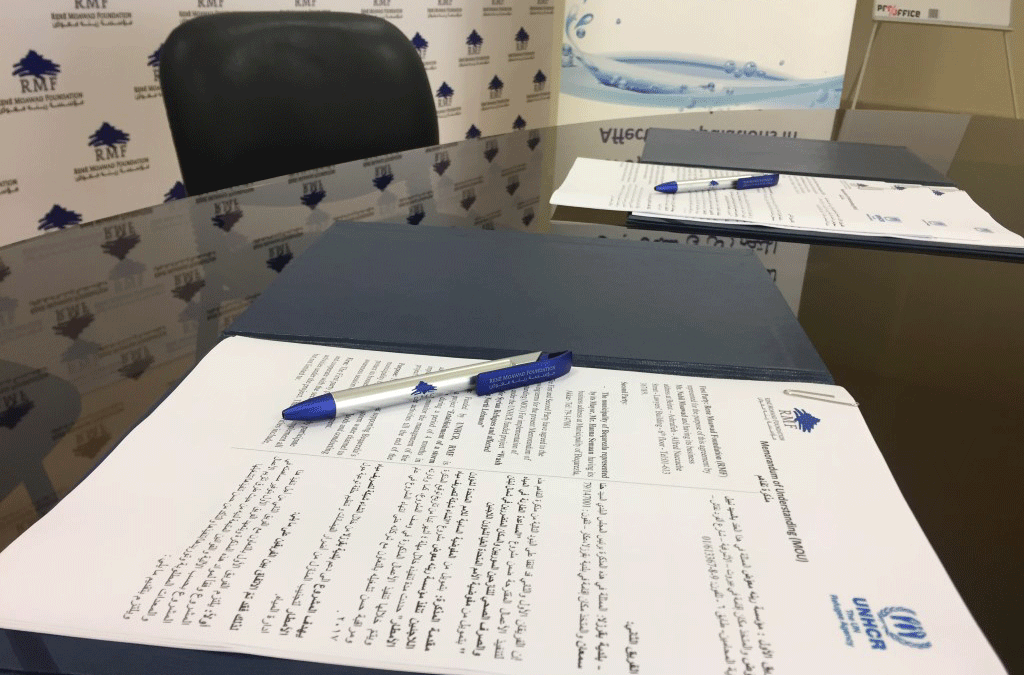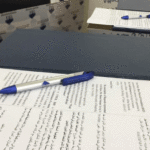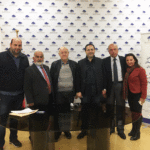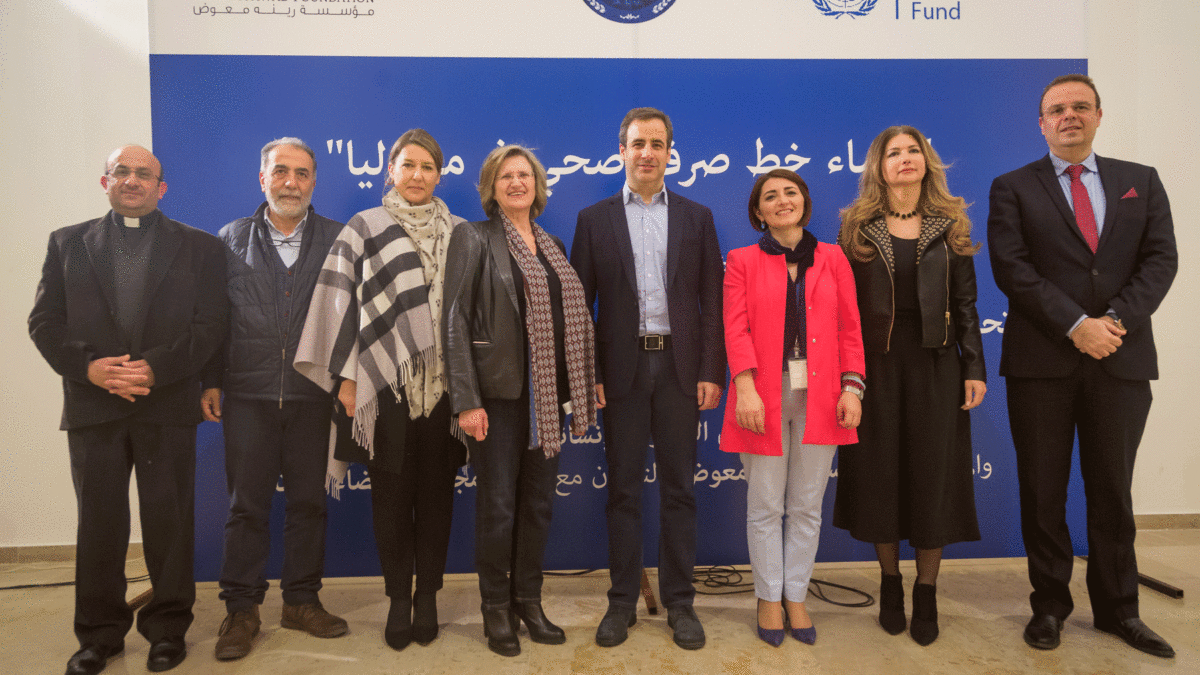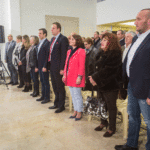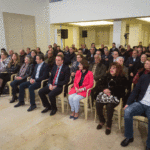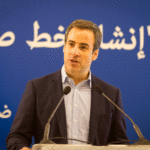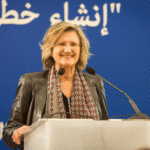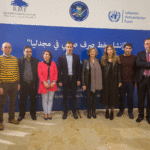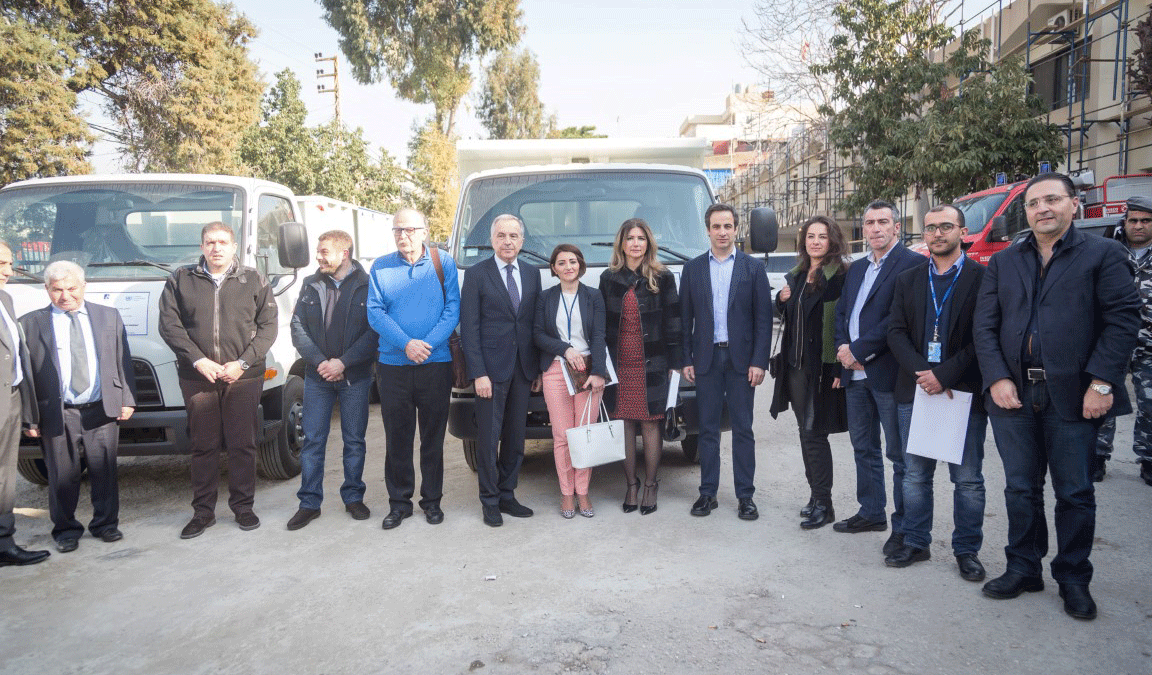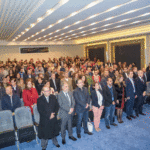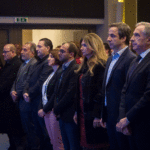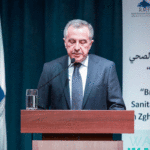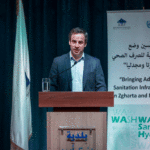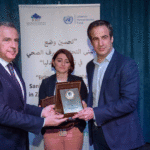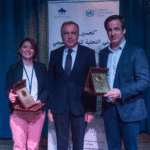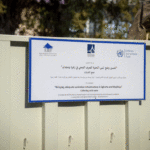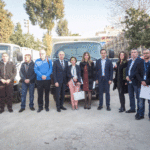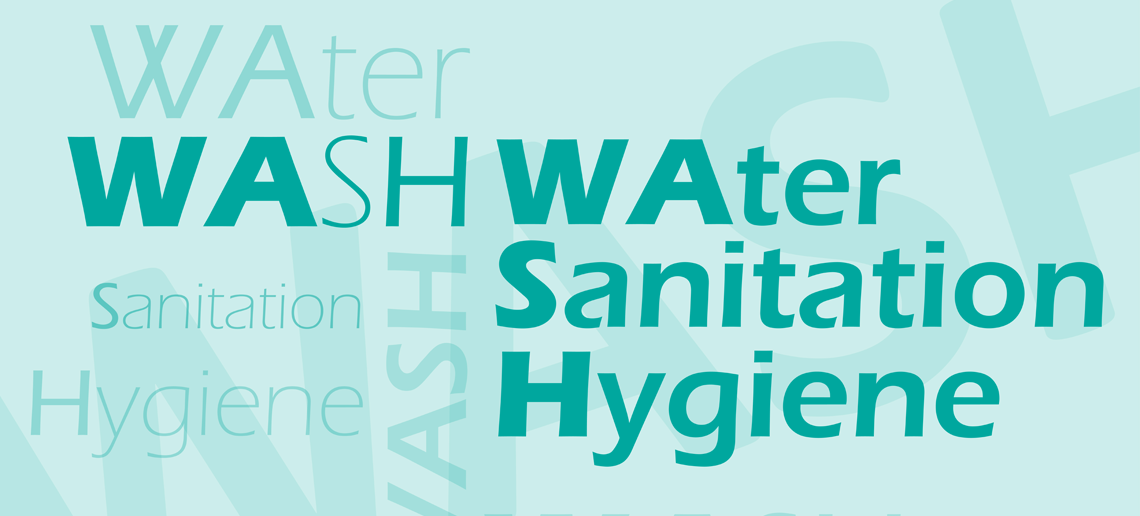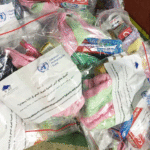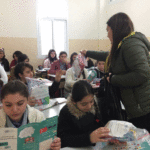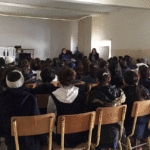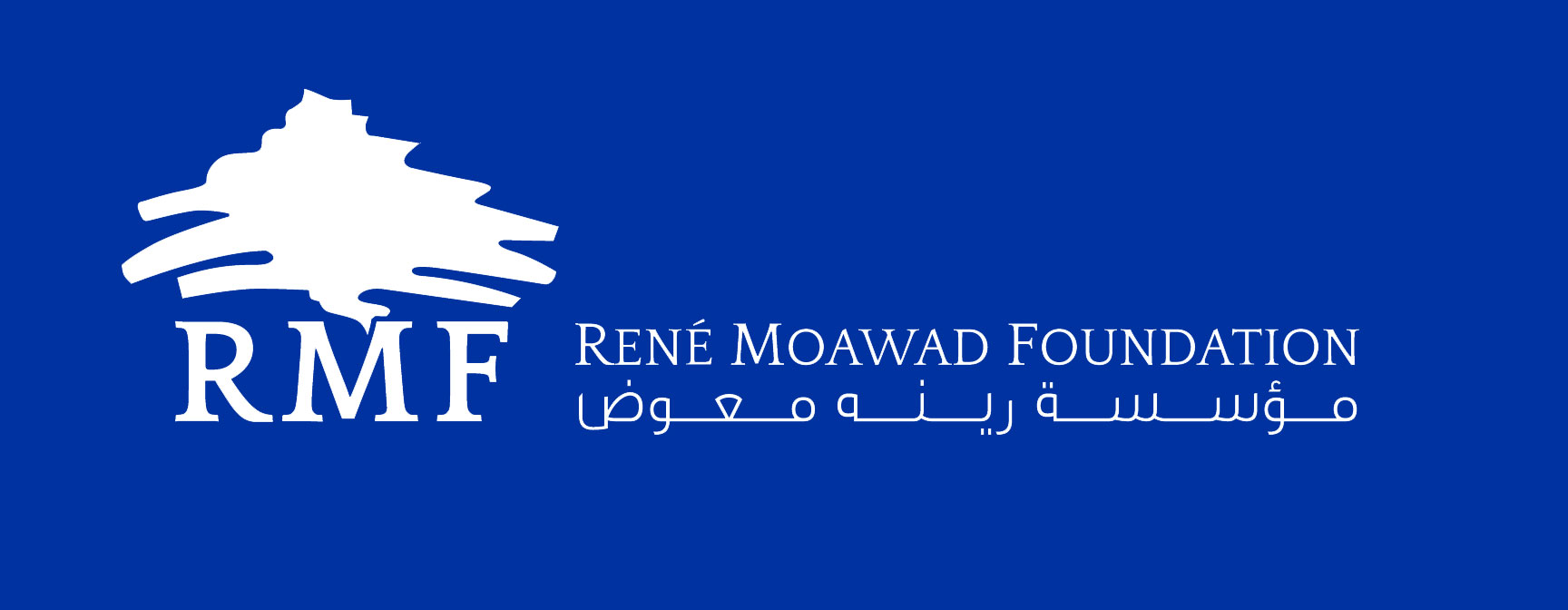RMF team attended the Learning event on Communication for Development (C4D) organized by UNICEF.
The general objective of this training is to review the role and function of C4D in achieving program goals and determine key considerations and steps to integrate C4D more strategically in the country program.
مؤسسة رينه معوض تشارك بورشة عمل بعنوان “تقنيات التفكير المتعلقة بالتصميم”، نظمتها اليونيسف
في بداية شهر شباط، شاركت مؤسسة رينه معوض، كشريك منفذ للUNICEF، بورشة عمل ناجحة بعنوان “تقنيات التفكير المتعلقة بالتصميم”. هدف الورشة، التي نظمتها الUNICEF، كان إيجاد حلول للشباب الذي يعاني من إيعاقات جسدية وفكرية في المناهج الرائجة المتعلقة بالتعليم وإكتساب المهارات.
Unicef/ILO trainings
RMF participated earlier this month in the Unicef/ILO “Rural Economic Empowerment” Training and “Competence-Based” Training. These trainings aim at improving the capacities of non-formal vocational training providers collaborating with UNICEF, in order to be capable to design and deliver training packages that are based on market needs and to address the immediate skills to increase the employability of low skilled unemployed Lebanese and Syrians.
Gender Community of Practice Workshop
RMF team participated in the “Gender Community of Practice Workshop” organized by BALADI CAP which focused on the role of gender in the community. This workshop brought together 12 participants from various local NGOs and aimed at enhancing Gender Equality and Female Empowerment throughout these organizations including RMF.
“محاضرة توجيهية حول موضوع “تصفح الإنترنت بطريقة آمنة
حضر أطفال من مركز مؤسسة رينه معوض لخدمات التربية والحماية في باب التبانة مع أهلهم محاضرة توجيهية حول موضوع “تصفح الإنترنت بطريقة آمنة” تم خلالها عرض مخاطر إستخدام الإنترنت من غير رقابة وكيف على الأطفال حماية أنفسهم من ما قد يتعرضون له من إستغلال، إبتزاز، أو تحرش من خلال مواقع التواصل الإجتماعي.
تمّت المحاضرة بالتعاون مع الحرم الرقمي الفرنكوفوني طرابلس، جامعة البلمند و مجمع الأرز التربوي.
MOU signatures under the UNHCR funded project, WASH
RMF signed a Memorandum Of Understanding with the mayors of Bkarzala, Bakhoun and Btouratij municipalities under the WASH assistance for Syrian Refugees and affected Populations in North Lebanon project, funded by UNHCR and implemented by Rene Moawad Foundation.
RMF launches a project for establishing a sewage network in Mejdlaya, funded by the United Nation’s OCHA – Lebanon Humanitarian Fund
Moawad: The lack of development is caused by the inefficient centralized system in the country. The only solution to fix this problem is to adopt a decentralized system.
RMF’s Executive Director Michel Moawad pointed out that “taxes and fees paid by the citizens in all the countries of the world are allocated to provide services, to implement development projects in the regions, and to offer services and comforts for the citizens. This is happening in all the countries, except in Lebanon.”
Moawad emphasized that the reason behind the lack of development is our failed centralized system. He stated that there will be no real change in this and no real development happening without adopting a decentralized system, which would give the local authorities in the regions wider powers to plan for and implement the development projects needed in their areas; the municipalities and local authorities being the most qualified to understand the needs of their regions.
Moawad’s statements came at the inauguration of the “Establishing a sewage network ” project in Mejdlaya which was organized by the Mejdlaya Municipality and the Rene Moawad Foundation within the framework of the “Bringing adequate sanitation infrastructure in Zgharta and Mejdlaya” program, funded by the UN’s Office for the Coordination for Humanitarian Affairs – Lebanon Humanitarian Fund (OCHA LHF).
The ceremony took place in the new hall of the Our Lady church in Mejdlaya, and was attended by: The Minister of Energy and Water Cesar Abi Khalil represented by Mr. Tony Marouni; the director of the OCHA LHF fund Ms. Rawad Al Zeer; Mr. Tony Suleiman Frangiyeh represented by Mr. Shadi Dahdah; the Caemmakam of Zgharta Ms. Iman Rifai; the President of the Union of Municipalities of Zgharta Mr Zeenni Kheir; the president of the ‘Ajyal’ foundation Ms. Marianne Sarkis; the mayor of Mejdlaya Ms. Joumana Beani along with members of the municipal council; a number of moukhtars; representatives of institutions and of religious, social, educational and cultural associations; in addition of a crowd of local people.
Details of the project
The “Establishing a sewage network in Mejdlaya” project falls within the scope of the broader “Bringing adequate sanitation infrastructure in Zgharta and Mejdlaya ” program that aims to limit the situations of conflict between the Syrian refugees and the local communities hosting them, in matters related to sanitation and infrastructure, and to improve the capacities of the hosting municipalities through the funding of development projects that target infrastructure, sanitation, waste water and rain water.
The project came after a preliminary evaluation conducted by the RMF team, with the cooperation and in coordination with the Municipality of Mejdlaya. The study encompassed the various sectors in the town, and determined the priority needs. It revealed the urgent need to remove the damages and harm caused by the sewage water running down the streets and roads that connect Mejdlaya to Al Fawwar. The absence of a sewage network in the area (The Carmeliyya-Fawwar road) was the reason behind this, and the problem had worsened due to the influx of Syrian refugees.
The main activities of the project to be executed by RMF are:
– Setting up a 1260 meters long line of sewage.
– Linking the sewage network of part of the Al Fawwar town to the new line of sewage.
– Building sewage connections to the houses along the Carmeliyya-Al Fawwar road, which will benefit 2,800 Lebanese and 640 displaced Syrians. And by this, remove the harm that resulted from the emission of bad smells and environmental pollution, in an area with a high population density and which includes a private hospital and a care home for the elderly.
– The project will also include awareness sessions and the distribution of manuals on water, sanitation, hygiene and the resolution of conflicts, in addition to the distribution of hygiene kits to1,000 students in 9 targeted schools in Mejdlaya and Zgharta.
RMF provides the Municipality of Zgharta with 2 waste collection trucks, funded by the UNOCHA – Lebanon Humanitarian Fund.
Moawad: “Enough of confessional mobilization and exploitation. We have seen where this led us to. Development should unite us.”
The Executive Director of the Rene Moawad Foundation, Michel Moawad, said that “the right of diversity of opinion is legitimate to all, but Development must bring us all together and unite us.” He pointed out that “Development is not for the benefit of any individual amongst us. Development is for all of us… for our children, and for the future of Zgharta.” He stressed: “I have a firm belief that Zgharta deserves from all us to put aside all our differences and sensitivities to put all our energy for the service of Zgharta.” He added: “Enough of confessional mobilization and exploitation. We have seen where this led us to, and where it led our whole region. Wouldn’t it be so great if we all focused our energies for the development of Zgharta? Zgharta’s interest unites us. Zgharta needs all of us.”
Moawad’s speech came on the occasion of an event organized by the Municipality of Zgharta-Ehden and the Rene Moawad Foundation at the Municipality’s quarters, during which the Foundation provided the Municipality with two waste collection trucks. This was within the framework of the ‘Bringing Adequate Sanitation Infrastructure in Zgharta and Mejdlaya’ project, funded by the United Nations Office of Coordination for Humanitarian Affairs (OCHA – Lebanon Humanitarian Fund).
The event was attended by the Zgharta Caemmakam Ms. Iman Al Rafii, the Rene Moawad Foundation’s Executive Director Michel Moawad, the Mayor of Zgharta-Ehden Dr. Cesar Bassim along with members of the Municipal Council, the head of the Humanitarian Fund for Lebanon at the United Nations Office of Coordination for Humanitarian Affairs Ms. Rawad Zeer and the office’s Financial Director Abdo Sadaka. Also present were mayors and members of municipal councils, social, educational and cultural dignitaries, and a crowd of citizens from Zgharta-Zawiyat.
The event ended by Mayor Cesar Bassim offering souvenir shields to Ms. Rawad Zeer and Mr. Michel Moawad, after he officially received the two trucks. Souvenir group photos were then taken and everyone was invited for a concluding reception.
Details of the project
The Rene Moawad Foundation’s team had conducted a preliminary assessment on the various sectors, which had detected the needs of the town. This work was done in coordination with the Municipality of Zgharta-Ehden. The assessment showed a lack in waste collection trucks, especially with the increased amount of waste resulting from the large number of displaced refugees, scattered in the various neighborhoods and corners of the town.
The duration of the project is 12 months. The Rene Moawad Foundation will be implementing it with the Municipality of Zgharta-Ehden. The targeted groups are: The people living in Zgharta, 3000 Syrian refugees, 1000 students in 6th, 7th, 8th and 9th grades, 9 schools (6 public schools and 3 semi-free schools. 2 of these schools are in Mejdlaya and 7 in Zgharta).
The overall objective of the ‘Bringing Adequate Sanitation Infrastructure in Zgharta and Mejdlaya’ project is to reduce the conflict between the Syrian refugees and the hosting communities in the targeted communities, in matters related to sanitation and infrastructure. More specifically, the goal is to support and improve the capacities of the municipalities that are hosting refugees, by funding development projects for the municipalities that address infrastructure, sanitation, rain water and waste issues.
In particular, the main activities of the project are:
– Providing two trucks for waste collection
– Holding awareness seminars
– Distributing guiding manuals on water, sanitation and hygiene – Conflict resolution at schools
– Distributing hygiene kits to 1,000 students in the targeted schools.
Hygiene kits distribution under the UN-OCHA LHF funded project
According to the World Health Organization (WHO), “Hygiene refers to conditions and practices that help to maintain health and prevent the spread of diseases.”
Under the UN-OCHA LHF funded project , “Bringing Adequate Sanitation Infrastructure in Zgharta and Mejdlaya”, RMF conducted various awareness sessions in 9 targeted schools in the mentioned towns. Moreover, informative booklets on Water, Sanitation and Hygiene along with sanitation kits were distributed by RMF team to 1000 students in the aim of raising awareness on good hygiene practices.

